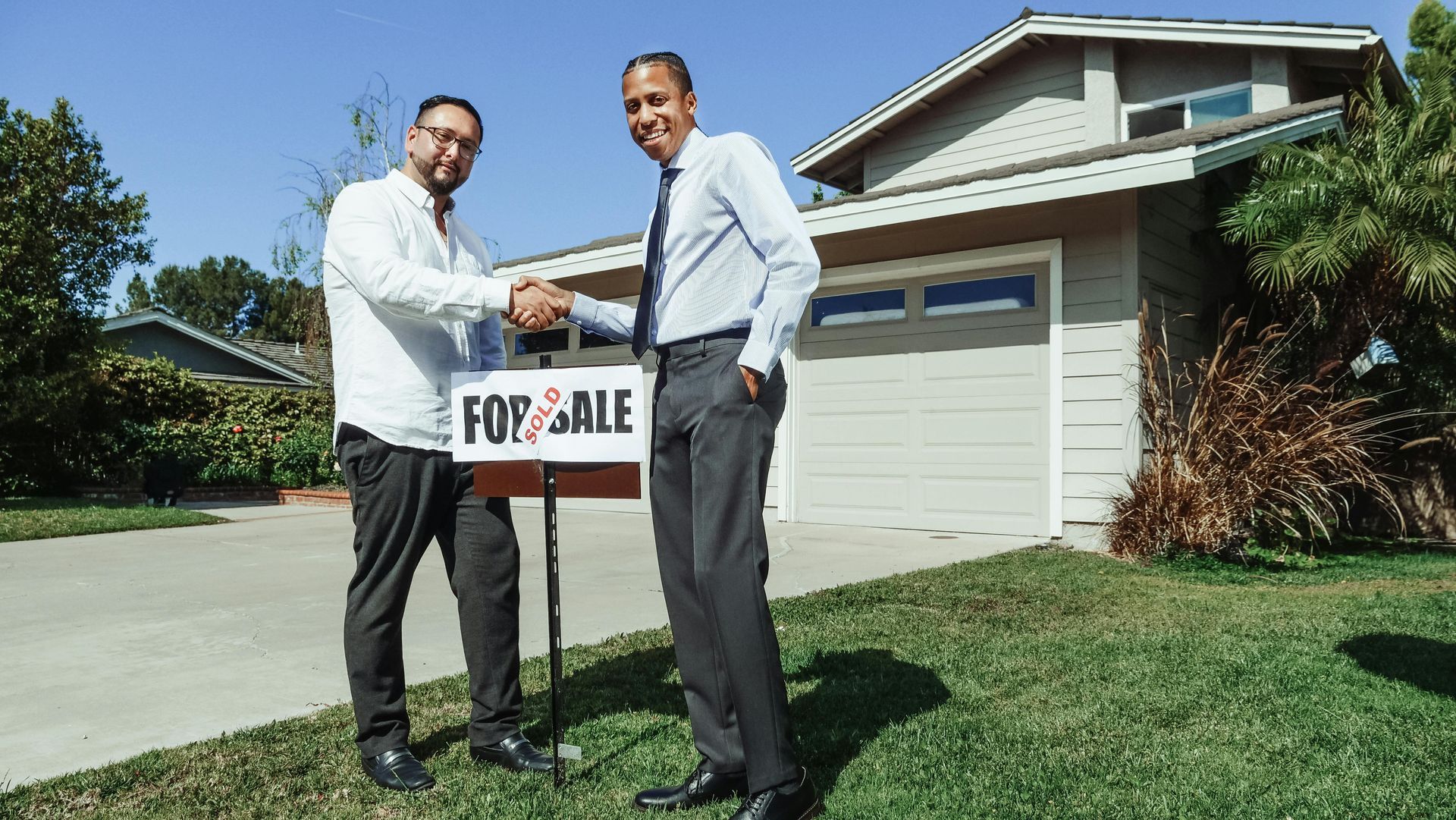How Much Does Conveyancing Cost in NSW? A Clear Guide to the Fees

Buying or selling a property is one of the biggest financial decisions you’ll ever make. Amid the excitement of finding your dream home or securing a great sale price, the various costs involved can be a source of anxiety.
One of the most common questions we hear at Hammond Nguyen Turnbull is: "How much does conveyancing actually cost?"
While it’s tempting to shop around for the cheapest quote, it's crucial to understand what you're paying for. A low number can often hide additional costs or, worse, reflect a lower standard of service that puts your transaction at risk.
This guide breaks down the costs of conveyancing in New South Wales to give you clarity and confidence.
What is Conveyancing? A Quick Refresher
First, let's recap. Conveyancing is the legal process of transferring ownership of a property from one person to another. It’s a critical service managed by a solicitor or licensed conveyancer that ensures the sale is legally binding, all required checks are completed, and your rights are protected from contract signing through to settlement day. This essential legal work is what you are paying for.
The Two Main Parts of Your Conveyancing Invoice
To understand the total cost, you need to know that a conveyancing invoice is typically made up of two distinct parts: the professional fee and the disbursements.
1. Professional Fees (The 'Service' Cost)
This is the amount your solicitor or conveyancer charges for their expertise, time, and the legal work required to complete your transaction. This fee covers crucial tasks such as:
- Reviewing and providing legal advice on the Contract for Sale.
- Negotiating contract terms and amendments to protect your interests.
- Liaising with your bank, the other party’s solicitor, and real estate agents.
- Conducting all necessary property searches and enquiries.
- Managing the electronic settlement process through platforms like PEXA.
- Ensuring the legal transfer of title is completed correctly.
At Hammond Nguyen Turnbull, we generally operate on a
fixed-fee basis for our professional fees. We have a mechanism where we charge an hourly fee, if the transaction is more complex than normal. We will raise this with you before any charges are going to be incurred. This means you know exactly what our service will cost from the very beginning, providing you with certainty and peace of mind. There are no surprise hourly bills.
2. Disbursements (The 'Out-of-Pocket' Costs)
Disbursements are the third-party costs that your solicitor pays on your behalf to gather the information and certificates legally required for the property transfer. These costs are fixed by government bodies or third-party providers and are passed on to you at cost.
The disbursements you need to pay will differ depending on whether you are buying or selling.
Typical Disbursements for a BUYER
- Title Search: To confirm the seller owns the property and to check for any dealings on the title.
- Council Certificate (Section 10.7): Shows zoning information and whether the property is affected by any council notices.
- Land Tax Search: To confirm if there is any outstanding land tax owed on the property.
- Building & Pest Reports: While optional, these are highly recommended to uncover any structural issues or pest infestations.
- Strata Report (for apartments/townhouses): Essential for checking the financial health of the owners' corporation, by-laws, and any upcoming special levies.
- Rates Certificates: This confirms what the council, water and strata rates are for the period, what needs to be adjusted and paid for on settlement.
- PEXA Settlement Fee: A fee charged by the electronic settlement platform.
- Final Search & Registration Fees: Final checks before settlement and the fee to legally register you as the new owner on the title.
- Other property certificates: Certain properties may require further searches to check if it is being acquired, if there is a tree preservation order etc.
Typical Disbursements for a SELLER
A seller is legally required to provide a complete Contract for Sale, which must include several key documents. The disbursements cover the cost of obtaining these, including the Title Search, Deposited Plan, Council Certificate, and Water/Sewer Diagram. If you have a mortgage, a mortgage discharge registration fee will also apply.
So, What's the Total Cost?
As of mid-2025, for a standard residential property transaction in NSW, you can typically expect the total conveyancing cost to fall within the range of $2,000.00 to $4,000.00 (including GST) plus disbursements.
Be wary of quotes that seem too good to be true. An unusually low fee may mean you are dealing with a high-volume, low-service firm where your file won’t get the attention it deserves, or you may find hidden costs added to your final bill. The final cost will always depend on the property and the complexity of the transaction.
Also be aware that there is a significant cost difference between licensed conveyancers and solicitors. See our previous
blog post about
the difference between the two.
Why Fixed-Fee Conveyancing Provides Peace of Mind
The property journey has enough uncertainty without worrying about escalating legal bills. Choosing a firm that offers a fixed professional fee ensures transparency. You can budget effectively, knowing that the fee for the legal service won't change, regardless of how many phone calls or emails are needed to get the job done right.
At Hammond Nguyen Turnbull, we provide you with a comprehensive quote upfront that clearly separates our fixed professional fee from an estimate of the standard disbursements required for your property.
Don't risk your biggest investment with "cheap" conveyancing. Invest in expertise and peace of mind.

Senior Solicitor
Email: kristen@hntlegal.com.au
Author
List of Services
-
Matthew HammondMatthew Hammond Matthew Hammond
-
Vivian NguyenVivian Nguyen Vivian Nguyen
-
Maria ValenzuelaMaria Valenzuela Maria Valenzuela
-
David CleverleyDavid Cleverley David Cleverley
-
Peter MorrisPeter Morris Peter Morris
-
Andrew PaciniAndrew Pacini Andrew Pacini
-
Marie-Cecilia FerreiraMarie-Cecilia Ferreira Marie-Cecilia Ferreira
-
Jabour HaddadJabour Haddad Jabour Haddad
-
Razeeha ReillyRazeeha Reilly Razeeha Reilly
-
Jack DunnJack Dunn Jack Dunn
-
Melanie KorialMelanie Korial Melanie Korial
-
Mahdi RahimzadaMahdi Rahimzada Mahdi Rahimzada
-
Albert ThaiAlbert Thai Albert Thai
-
Martin AbdelsayedMartin Abdelsayed Martin Abdelsayed
-
Rachel SiewRachel Siew Rachel Siew
-
Jamie-Lee MerhiJamie-Lee Merhi Jamie-Lee Merhi
-
Lina VoLina Vo Lina Vo
-
Georgia MoaitGeorgia Moait Georgia Moait
-
Sarah FoddaSarah Fodda Sarah Fodda
-
Alessia GiglioAlessia Giglio Alessia Giglio
-
Alexander BatshonAlexander Batshon Alexander Batshon
-
Andre BarkhoAndre Barkho Andre Barkho
-
Gauri KoteraGauri Kotera Gauri Kotera
-
Bridgette EdmundsBridgette Edmunds Bridgette Edmunds
-
Michelle GalaritaMichelle Galarita Michelle Galarita
-
Bea OctavaBea Octava Bea Octava
-
Liber ReboquioLiber Reboquio Liber Reboquio
-
Jing DyJing Dy Jing Dy
Share to










